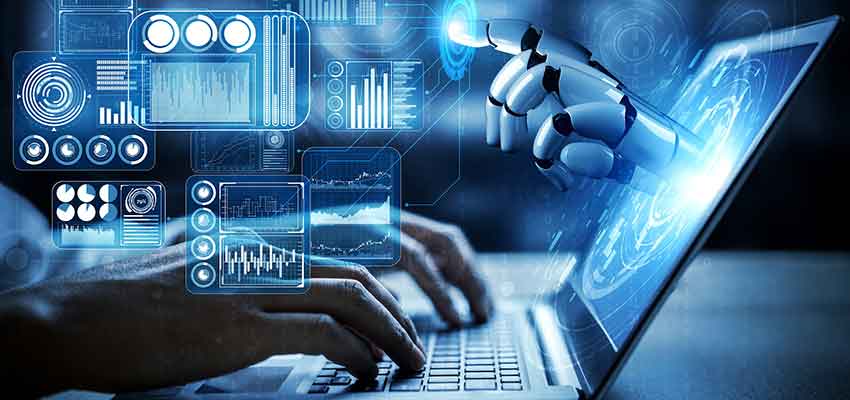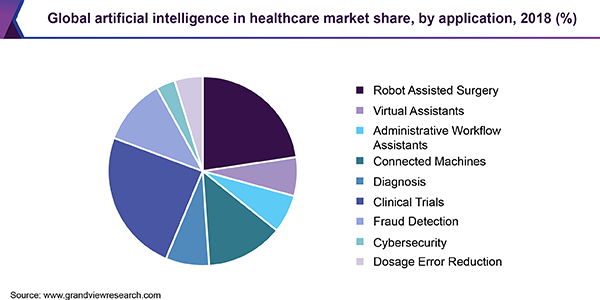Show:
How AI And Automation Are Changing The Nature Of Work, And What Future Do They Hold?
Automation and AI, along with other innovations, are changing the fundamental nature of work. They are transforming how businesses and customers communicate and execute their internal processes, transforming themselves in their operational ways. Understanding these innovations helps the business leaders, innovators, and professionals to move forward.

AI and automation are transforming businesses and, in the future, will contribute to economic growth by contributing to productivity. They also help address the societal challenges in the fields varying from health to climate change. Simultaneously, these technologies transform the nature of the job and the workplace itself. Machines can carry out more tasks as can be done by a human, complement the human work, and even perform specific tasks beyond human capabilities. Resultantly, certain occupations may decline, some thrive, and many will eventually change.
While we may believe that there will be enough work to go around, society needs to grapple with essential workforce transformations and dislocations. The employees may need to acquire new skills and adapt to the capable machines alongside them in the workplace. They might have to shift from reducing occupations to growth and, in some cases, brand new careers.
Domains Affected By AI And Automation
As discussed above, AI and automation affect almost every domain of the business. Here are some of the fields that it impacts:
1. Real Estate
AI has already made its way into the real estate industry and is the cause of a massive change in this industry by affecting the home search experience and predicting the market trends in the real-estate sector.
AI-enabled home search portals exhibit recommended characteristics that match customer preferences and personality traits. These portals support lesser, high-quality properties that better fit the customer’s needs. Chatbots help to resolve simple questions so as to enable prospective customers to find their next home. With machine learning and AI, chatbots are becoming smarter by day and will soon be capable of answering complex search queries proficiently through text and voice. With AI taking over much of manual work, you will be able to focus on building customer relationships or making contracts.
AI holds the capability to predict the market values of the properties by combining CRM and marketplace data. The day is not far when the robots may help the agents offer an exquisite buying experience to the customers. AI is meant to play an essential role in improving the productivity of the agents and offering the customers with a custom-designed user experience.
2. Retail
Just in our daily life, we see robots and AI are taking over the retail sector rapidly. Whether it is Amazon Go or a cashless convenience store, AI, and robots have touched every aspect of the retail industry. IBM claims that by 2021, 85% of the retail products and 79% of consumer products businesses aim to use AI for the supply chain. This new system uses augmented reality (AR), object tracking, projection systems, and voice activation to transform the customer’s experience entirely.

Automation and AI are ready to redesign the undivided retail industry model and the broader value chain. This transformation will result in the unfolding of the organizations with lesser layers and a skilled, trustworthy workforce – all of these, backed by real-time analytics and data recording. With more well-trained teams and improved roles that are an amalgamation between the business and the technology, organizations will have a faster decision-making process.
3. Healthcare
Health care already uses artificial intelligence to diagnose and treat diseases. The doctors and hospitals can extensively use AI in treating cardiovascular diseases, or like the modern IDx-DR, create a binary diagnosis within a matter of seconds.
Brain-Computer Interfaces, aka BCI enabled by artificial intelligence, are capable of restoring the neurological abilities of the people who have suffered trauma in the past. Artificial intelligence is set to build the next generation of radiology tools that guarantee accuracy and are detailed enough to replace tissue samples’ requirement – as the experts say. The same goes for the pathological tests as well. In the near future, AI is said to help fill the shortages of trained health care providers, particularly in the underdeveloped regions.

Artificial intelligence’s presence will help medical professionals diagnose disease faster and work on deriving better solutions by using the data collected from the AI algorithms. Thus, it becomes vital for healthcare providers, radiologists, or pathologists to understand and implement technologies.
4. Manufacturing
Automation and artificial intelligence are the keys to potential growth in all industries, and the manufacturing sector is not an exception. Manufacturers use AI-enables analytics and data to decrease unplanned downtime, improve efficiency and employees’ safety. Research by the PwC suggests that by 2030, 45% of the total economic gains will be from product enhancements and stimulating consumer demands. Artificial intelligence can significantly improve the capacities of every manufacturing business operation.
Artificial Intelligence aids predictive maintenance as it enhances asset utilization and productivity by predicting haphazard machine or equipment breakdown. It enhances production by identifying the underlying causes of output losses, locating the detractors, and maintaining the engine efficiency. AI technologies require special skills; likewise, automation that is already adopted by the manufacturers demand a skilled workforce. The business owners can combine the AI with other business management processes except manufacturing viz, payroll management software, the customer relationship management solution, etc., to increase efficiency.
We should consider AI adoption in the manufacturing industry as a positive development and achieve fruitful results through training and re-skilling the current workforce. AI and automation allow us, humans, to focus on tasks that generate more value for their business and the roles. The companies can lead the manufacturing industry transformation by combining the current workforce’s hands-on expertise with the working knowledge of the latest technologies used in production processes.
In Conclusion
Businesses can achieve improved productivity, increased accuracy, and quick process completion by implementing artificial intelligence and automation in their business operations. However, the only challenge that AI and automation face is the fear of job loss among the employees. There have always been employment opportunities in the market; that is not going to change even if the businesses adopt AI or automation. However, these new chances require the employees to learn new skills and be open to adapt to the changes. Training and retraining the existing and recruits for the potential challenges will be crucial. The future of technology can be much more prosperous if we get along well with the technologies and the changes it brings forth.

 Return to Previous Page
Return to Previous Page








